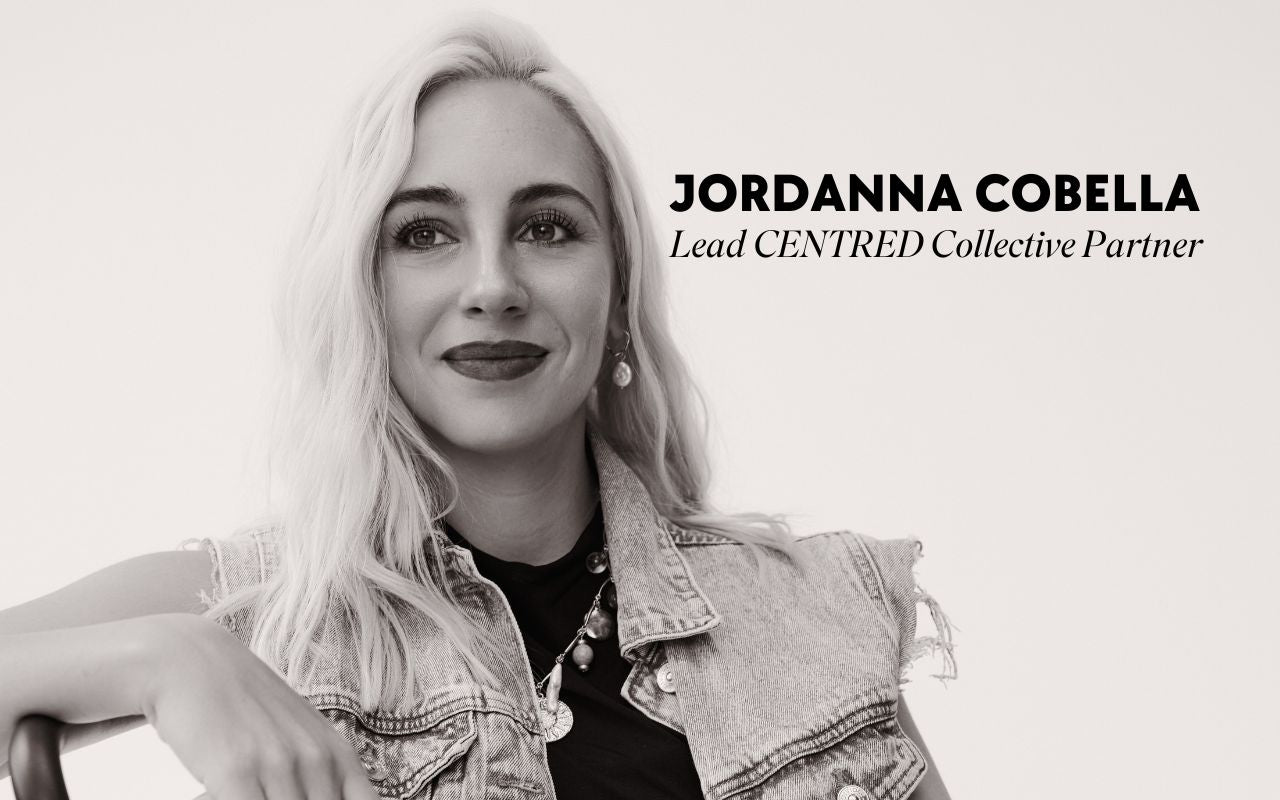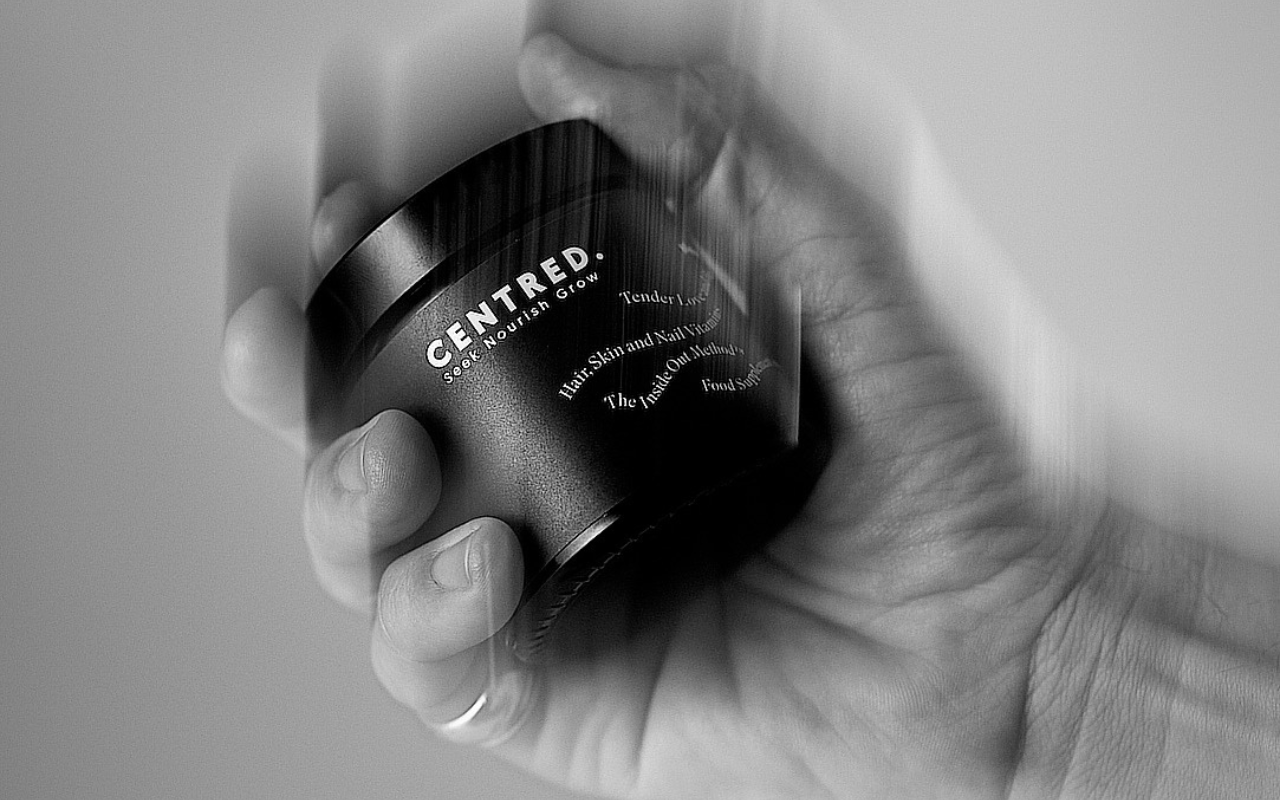How to prevent hair loss and recover hair from a bout of shedding
Hi, my name is Laura Tudor and I founded CENTRED along with my husband, award winning hair stylist Kieran Tudor, after experiencing severe hair loss back in 2017.
If you are here, chances are you have been experiencing some hair shedding so let me start by saying I feel you. I know what it is like to have that gut wrenching feeling each time you hold clumps of hair in your hand and I want to also say that despite what you may be feeling now, it will get better and I am living evidence that making some lifestyle changes, prioritising health and using the right products can make the world of difference.
During the course of an 18 month hair recovery period, I took a deep dive and began researching my problem and what I could do to fix it. This article is intended to help give you the easily digestible information you need in order to try to understand your hair loss or thinning hair and hopefully give you some guidance on what you can do to start growing healthy hair again.
So let’s dive in...
Identifying the underlying triggers of hair loss (The Root Cause)
One of the trickier aspects about hair loss is knowing what the root cause is. Investigating the possible triggers is the best place to start if you are experiencing hair shedding. Remember that you may in fact have multiple triggers that are contributing to your hair loss, so taking a look at the list below and investigating which may be relevant to you can help you begin to address and remove the triggers, there by getting to the source of the problem. Once you have addressed the root cause you are then in a far better position to start treatment.
Genetics: If hair loss runs in your family, you may be genetically predisposed to it.
Hormonal Changes: Hormonal imbalances, such as those during pregnancy, menopause, or thyroid disorders, can lead to hair loss.
Stress: High levels of stress can disrupt the hair growth cycle.
Check out this article - Cortisol and thinning hair, what's the link?
Nutrition: A poor diet lacking essential nutrients can weaken hair follicles.
Hairstyling Practices: Excessive heat, tight hairstyles, and chemical treatments can damage hair.
Medical Conditions: Conditions like alopecia and scalp infections can cause hair loss.
What are the most common types of hair loss?
Hair loss, also known as alopecia, can occur for various reasons, and there are several common types of hair loss. Here are some of the most prevalent ones:
Androgenic Alopecia (Male and Female Pattern Baldness):
This is the most common form of hair loss in both men and women.
It is hereditary and typically progresses with age.
In men, it often starts with a receding hairline and thinning at the crown.
In women, it leads to diffuse thinning of the hair on the scalp.
Telogen Effluvium:
This type of hair loss occurs when a significant number of hair follicles enter the resting (telogen) phase prematurely due to stress, illness, surgery, hormonal changes, or medication.
This hair loss is generally temporary providing the underlying cause or causes are addressed.
Alopecia Areata:
Alopecia areata is an autoimmune disorder where the immune system mistakenly attacks hair follicles, leading to hair loss in small, round patches on the scalp or other parts of the body.
In some cases, it can progress to alopecia totalis (loss of all scalp hair) or alopecia universalis (loss of all body hair).
Traction Alopecia:
Traction alopecia is caused by prolonged and repeated tension on the hair follicles, often due to tight hairstyles like braids, ponytails, or hair extensions.
It is common among individuals who wear such hairstyles regularly.
Scarring Alopecia:
This type of hair loss results from inflammation or injury to the hair follicles, which leads to scarring and permanent hair loss.
Conditions like lichen planopilaris and discoid lupus erythematosus can cause scarring alopecia.
Trichotillomania:
Trichotillomania is a psychological disorder in which individuals compulsively pull out their own hair, leading to noticeable hair loss.
It often requires therapy to address the underlying causes.
Anagen Effluvium:
Anagen effluvium is usually caused by exposure to chemicals or radiation, such as chemotherapy for cancer treatment.
It results in the sudden loss of actively growing (anagen) hair.
Nutritional Deficiencies:
Inadequate nutrition, particularly deficiencies in iron, biotin, zinc, and other essential nutrients, can lead to hair loss.
check out this article - The best vitamins for hair growth
Medication-Induced Hair Loss:
Some medications, such as certain blood thinners, antidepressants, and anti-fungal drugs, can cause hair loss as a side effect.
Hormonal Changes:
Hormonal fluctuations, such as those during pregnancy, menopause, or thyroid disorders, can contribute to hair loss.
How can I stop hair loss naturally?
Introducing CENTRED, The Inside Out Method ™️
This collection has completely transformed my hair and given me my confidence back and since we launched in 2020, we have been helping thousands of customers get amazing results.
How does CENTRED treat hair loss?
You’re not taking the fullest care of your hair, until you are adopting The Inside Out method ™️
Hair growth comes from within, so we start there.
Tender Love & Hair is our targeted and effective hair growth supplements with Bamboo extract, Zinc, Biotin and Seaweed. A powerful formulation of the highest quality vitamins, minerals and herbal extracts to boost hair strength, health and fullness from the inside out.
Next step, scalp. The scalp is the a flower bed of your hair growth. Feeding the follicles is essential for healthy hair growth.
En-Root Scalp Oil is an award winning 3-in-1 scalp treatment with Rosemary leaf extract, Peppermint and Tea Tree as well as Salicylic Acid. This pre wash, oil based cleanser is designed to target and nourish hair follicles by boosting blood flow, providing nourishment and oxygen for fortified, revitalised hair. Apply to a dry scalp then massage the oil in using your finger tips or our squishy scalp massager for 3-5 mins to help increase blood circulation whilst deeply exfoliating the scalp.
Haircare, The CENTRED. Way.
Alongside using the CENTRED collection we recommend the following effective strategies for helping to recover hair from hair loss, prevent hair loss and promote healthy, strong and vibrant hair growth.
Nutrition and Diet:
Ensure you have a well-balanced diet rich in vitamins, minerals, and proteins essential for healthy hair growth. Focus on foods like leafy greens, lean proteins, nuts, and seeds.
Consider taking supplements like biotin, zinc, and iron if you have deficiencies, but consult a healthcare professional first.
Scalp Massage:
Regularly massaging your scalp can increase blood flow to the hair follicles, promoting hair growth. You can use essential oils like rosemary or peppermint oil during the massage.
Gentle Hair Care:
Avoid excessive heat styling, tight hairstyles (which can cause traction alopecia), and chemical treatments that can damage your hair.
Use a mild, sulphate-free shampoo and conditioner suitable for your hair type.
Stress Reduction:
High stress levels can contribute to hair loss. Practice stress-reduction techniques such as yoga, meditation, deep breathing exercises, or hobbies that help you relax.
Adequate Sleep:
Ensure you get enough quality sleep, as inadequate sleep can disrupt hormonal balance and affect hair health.
Hydration:
Stay well-hydrated by drinking enough water daily. Dehydration can negatively impact hair growth.
Avoid Smoking and Excessive Alcohol:
Smoking and excessive alcohol consumption can contribute to hair loss. Quitting smoking and moderating alcohol intake may help.
Herbal Remedies:
Some herbal remedies like saw palmetto, ginseng, and stinging nettle are believed to have properties that may help slow hair loss in some cases. Consult a healthcare professional before using these remedies.
Avoid Tight Hats and Helmets:
Wearing tight headgear for extended periods can cause friction and damage to the hair shaft. Opt for looser-fitting hats or helmets when possible.
In summary:
Getting to the root of the problem and addressing it is key when it comes to hair loss and we are here to support you on your hair health journey. If you have any questions drop us a line at hello@wearecentred.com and join the community @wearecentred





